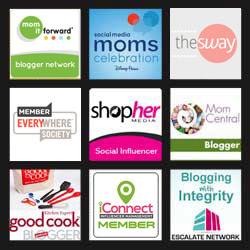As strange as that headline seems, that’s the claim of a new study from the Harvard Business Review. From the article:
Comparisons showed that people who brought their own bags were more likely to buy organic goods—but were also more likely to load up on high-fat, high-calorie junk.
Do we tend to indulge ourselves with treats when we feel that we’ve done the right thing?
… amazing quantitative analysis on this. The data we worked with was based on loyalty cards, so we didn’t just compare individual transactions. We could compare the purchases of the same people when they brought bags versus when they didn’t. Among those who sometimes brought them you could see different behavior based on whether or not they had their bags with them. It’s great data.
So this is the classic indulgence: You do good and— You give yourself a cookie. In this case literally. In consumer psychology the word “licensing” is the key. If I behave well in one situation, I give myself license to misbehave in another, unrelated situation. Similar research has also been done on health decisions. I get a Diet Coke; I treat myself to a hamburger. In this case bringing a bag makes you think you’re environmentally friendly, so you get some ice cream. You feel you’ve earned it.
I myself have never been aware of this phenomenon in my own shopping, but perhaps that’s the idea — we aren’t aware of it? Most days, I am just trying to remember to take my bags out of the back of my vehicle and bring them into the store…










dancingwolves says
at least from what I have seen. I do a lot of small shopping trips as well as shop for others (I should start a business).
I glance at what people buy that I am waiting behind. From my experience, those who tend to bring their own bags also tend to be people who do not have any junk food in their transaction. They have fruits veggies lean meats, nuts and whole grains. Some of it looked organic from the brands I have seen.
I bring my own bags most of the time but I am the exception to this rule. I do have some junk food including liters of pop and processed foods.
I have yet to see this phenomena in action for others.
kate114 says
Apparently part of the experiment was to compare what shoppers actually did in the store, based on loyalty card history, with what they might do when told to “imagine going shopping”. (see full article.) Shoot, we’re all good on our diets when we imagine eating out, but in the restaurant when the dessert tray rolls by…
And what other data was released about me? They obviously can glean what type of products purchased, brands, how much, how often, recycled bag usage. Did the store withhold other receipt information or did they have access to the whole that would show time of day, coupon usage, payment by credit/debit/cash/SNAP/WIC? Even taken anonymously this stuff is beginning to creep me out.
And by the way, do loyalty cards promise any assurance of privacy for the important stuff such as name, address? (Yes, everyone can be hacked.)